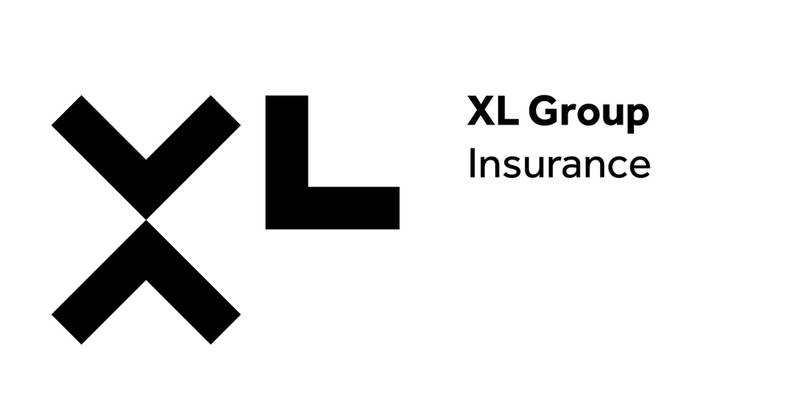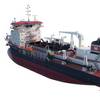Logistics and Warehouse Insurance: Understanding its Complexity
In October 2013, a fire blazed through Brazil’s Santos port, destroying six warehouses and the 180,000 tons of raw sugar inside Sugar Company Copersucar’s terminal. The fire hit all of the sugar giant’s warehouses at the port and left many exporters holding contracts for sugar with an empty bag.
Following the fire, Copersucar declared “force majeure” to third party exporters who had contracts to ship the sugar through the now-burned terminal. Force majeure is a legal term referring to unforeseen catastrophic events freeing companies of contractual liabilities because events outside its control prevent it from honoring obligations. Unfortunately, the fire was determined to be a result of poor maintenance practices at the terminal. All of the parties involved relied on their insurance policies to reimburse them for the loss. The question is did they have the right coverage.
Were the goods in long term storage? Were the goods being processed prior to export? Were the goods just passing through and in the due course of transit under an ocean Bill of Lading? Each situation might require a different insurance solution.
Gray Areas
Oftentimes the warehouse or terminal is an intermediary space with goods ‘passing through’ on the way to the final destination. The Santos Port sugar fire shows how blurry the lines of liability can be and raises a lot of questions. If the goods were stored at a terminal, are they protected under a property insurance policy? If they were in the Care, Custody and Control (CCC) of the Terminal, they were most likely excluded under a basic first party Property Policy. Likewise, most General Liability policies exclude liability for goods of others in your CCC. If the goods were being processed at the location, other exclusions might apply.
This liability for goods of others in their CCC, has resulted in the need for Warehouse Legal Liability (WLL) and Terminal Operators Legal Liability Coverage forms. These forms protect the Terminal or Warehouse Operators if they are held responsible for damage to goods while in their CCC. Warehouse owners and operators can be held liable if the goods being stored in their warehouse are destroyed, damaged or stolen. This coverage protects owners and operators related to a damage claim. WLL coverage offers protection against the costs of legal defense, damage awards and other expenses if transit of goods has ended the bill of lading and is now stored under separate contract or warehouse receipt.
As goods are often passing through warehouses, many assume that the goods are protected by the owner’s cargo policy. Others assume if the terminal operator has coverage that is the only insurance needed. While in the due course of transit, the cargo owner can protect their investments with an Ocean Cargo policy. However, the cargo owners will still look for recourse against a terminal operator if their goods are damaged.
Coverage Gaps
Despite the gray coverage areas, potential gaps in insurance protection and risks onsite at marine warehouses and terminals, many marine operations fail to identify the correct insurance coverage necessary to protect them. These short stays at a facility could result in coverage gaps for terminal operators who do not have warehouse legal liability coverage.
Terminal Operators Legal Liability insurance covers goods in the due course of transit under the original bill of lading. Warehouse Legal Liability insurance covers goods which have been taken out of transit and are stored under a warehouse receipt. Many Terminal Operators coverage forms are unclear as to whether goods under a warehouse receipt are covered under the policy. It is important to be sure you have full coverage if the Terminal Operator issues Warehouse Receipts for good held in storage. Some policies require an endorsement to extend coverage, while in other cases, this is included.
Overlapping Coverage
Due to the nature of goods in transit, it is common for multiple insurance policies to insure the same goods throughout various stages of the export. It would be a mistake for a Terminal or Warehouse Operator to assume they do not insurance for goods in their CCC because there is a first party policy in place. Examples of these coverages might include:
• Basic Ocean Cargo Policy: Coverage purchased by the buyer or seller which provides coverage for the exported goods throughout the due course of transit until final destination.
• Freight Forwarder Policies: The Freight Forwarder is protected by a Freight Forwarders Legal Liability Policy while the goods are in transit or stored in warehouse while in the CCC of the Forwarder.
• Consolidation/Deconsolidation: Coverage while goods are at warehouse temporarily to be packed or unpacked into smaller/larger containers, this is often included in the Ocean Cargo Policy.
• Warehouse and Processing Coverage: Coverage while the goods are temporarily taken out of transit for the purpose of storage or processing.
Setting Limits
The Warehouse receipt and the Bill of Lading are two very important documents when determining warehousing and logistics liability. A warehouse receipt is a document that provides proof of ownership of commodities (e.g., bars of copper) that are stored in a warehouse, vault, or depository for safekeeping. A Bill of Lading, on the other hand, is a required document to move a freight shipment as long as the goods are in due course of transit. Both often include limits of liability clauses to define the maximum responsibility.
The general rule is that warehouse receipts need not be in any particular form. They must, however, contain the following information:
• Location of the warehouse and the place where the goods are stored;
• Date when the receipt was issued;
• Consecutive number of the receipts;
• Terms indicating whether the goods are to be delivered to the bearer of the receipt, to a particular individual, or to a particular individual on his or her order;
• Storage rate or handling charges; a statement describing the goods or the manner in which they are packed;
• Signature of the warehouseman or his or her agent
• Amount of advance payment made, if any; and any other terms that do not impair the warehouseman’s duty.
Warehouse receipts include liability limitations with many variations. Some limit the liability to a multiple of the base monthly storage charge such as $300 times the monthly storage charge. Others might provide replacement cost or actual cash value of the goods. Other examples may provide an amount based on weight such as $5.00 per pound. It is not uncommon to see a combination of these options subject to whichever is less or whichever is more. To understand how much the Warehouse or Terminal Operator is legally liable for, it is important to read the contract. To make the options even more complicated, many of the clauses are complex, and if there are fields to complete such as an amount per pound, they are often left blank.
In situations where a warehouse receipt does not contain these provisions, the warehouse can be held liable in damages to anyone who sustains financial injury because of the omission. If the goods are not under a warehouse receipt the calculation of legal liability would be based on the Bill of Lading; however, if the goods have been taken out of the due course of transit, the Bill of Lading would no longer apply. In situations where a terminal operator has allowed goods to remain at the location for an extended amount of time without issuing a warehouse receipt, that terminal operator may find they are legally liable for the full replacement cost of the goods while in their care, custody or control.
Most people believe that Terminal Operators and Warehousekeepers cannot be legally liable for catastrophic events such as hurricanes or floods. However, the Terminal Operator has been found to be legally liable to protect the goods from an impending event or after the storm has passed. Courts have held that the Terminal Operator or Warehousekeeper must act prudently to protect the goods from damage by taking preventive measures before and after a storm. Proper risk management and storm plans are a critical in protecting customers goods while in your care, custody and control.
Complex Claims
Supply chain risks are complex. So, too, are the insurance claims that result from moving goods to various points around the world. While documentation like warehouse receipts and bills of lading can play an integral part in a terminal operators or warehouse’s risk management efforts, there are a lot of other moving parts that can be called into question when a loss results.
For instance, while Warehouse Legal Liability covers a loss of stored goods at an insured location, what if damage occurs while unloading the truck? There are also situations where concealed damage is involved – that is, damage that is concealed at the time of delivery. Likewise, while terminal operator’s liability would provide protection for goods still on the move, what if a warehouse receipt is issued for just a short delay? Or what if no warehouse receipt is issued, but the goods are no longer in the due course of transit?
Working with seasoned marine risk management, insurance and claims specialists is more important in managing terminal and warehouse risks than ever before. Seeking qualified help can help marine facilities fill in gaps in insurance coverage, proactively address property or operational exposures and manage the complexity that comes with moving and storing goods that are a vital part of supply chains.
The Author
Virginia Cameron is Senior Vice President of Inland and Ocean Marine in XL Group’s North America Marine business where she oversees strategy, underwriting and training.
(As published in the April 2015 edition of Maritime Reporter & Engineering News - http://magazines.marinelink.com/Magazines/MaritimeReporter)














